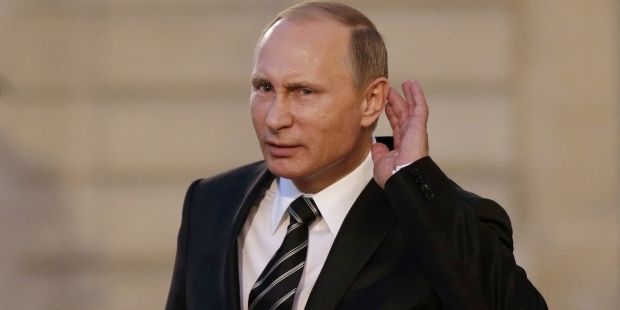
Every October, Kremlin sympathizers gather on this mythical Greek island. This year’s edition, coming amidst political ructions in Moscow and Russia’s surprise intervention in Syria, had an unusual flavor, according to the report.
Vladimir Yakunin, former Russia’s railways chief, is a patron of the Dialogue of Civilizations annual forum established in 2003. He is described by the U.S. Treasury as Putin’s “close confidant” and remains under American sanctions for his role in unleashing the Ukrainian conflict. However, nothing prevents him from travelling to Rhodes because he is not on the EU blacklist. The forum draws politicians and academics, many of whom share Russia’s socially conservative, anti-liberal and anti-American agenda.
Addressing the forum, held at a five-star resort on Rhodes, Yakunin lashed out against what he sees the Western culture of consumerism and hedonism. In Russia, he is known as an advocate of closer ties between the church and the state and a critic of what he sees as Western immorality.
Read alsoPutin supporter in EP calls migrants human garbage Lavishly funded by a Swiss-based foundation linked to Yakunin, this year’s Rhodes forum was attended by 380 people, their expenses at least partly covered by organizers. The lineup included former Czech president Vaclav Klaus, former German defense minister Karl-Theodor zu Guttenberg and former head of the Council of Europe Walter Schwimmer, who is the forum’s permanent co-chairman. Originally on the guest list, Greek Prime Minister Alexis Tsipras sent a deputy foreign minister to greet the participants on his behalf.
Most speakers endorsed Russian policies on Syria and Ukraine and rejected those of the West. The famously Euroskeptic Klaus told Politico that he considered Putin’s decision to launch a bombing campaign in Syria “a rational step.”
“There must be someone who considers ISIS as a hundred times greater threat than [Syrian President Bashar] Assad,” he said. Klaus dismissed Ukraine’s Maidan revolution as “imported” and “not fully authentic.” On Crimea, taken over by Russia in March 2014, he was unequivocal: “It is a part of Russia and will remain such in foreseeable future.”
John Laughland, another Euroskeptic from Britain, argued that the EU was a product of hybrid warfare waged by the CIA to subjugate Western Europe after World War II. “War aims at the creation of a new regime. John Foster Dulles was quite clear in 1941 that Europe needs a new regime and that it couldn’t have national states anymore,” he said. Laughland confirmed that his think tank, Paris-based Institute of Democracy and Cooperation, is funded by private Russian foundations, but he said he didn’t know their names.
Read alsoNATO may toughen sanctions against RussiaLaughland addressed a plenary session intriguingly devoted to hybrid warfare, a term often used with reference to the Russian tactics in Ukraine. But, like other speakers, he turned the table by accusing the U.S. of applying this tactics in Europe and elsewhere around the world.
Other speakers echoed his views. Professor Ilias Iliopoulos of Hellenic National Defence College in Athens accused the U.S. and the EU of waging a hybrid war against Russia and Arab states by means of mobilizing people around the ideas of human rights and protecting minorities with the aim of imposing “neoliberal fascism” on sovereign nations.
Although the forum can still afford to occupy a five-star resort for four days, long-timers said the number of participants and workshops dwindled compared with previous years. Many were asked to chip in by paying for their airfare, while in previous years all expenses were covered by organizers. Some expressed fear that it could have been the last forum, but Yakunin sounded upbeat and announced plans for creating a think tank in addition to the annual event.

